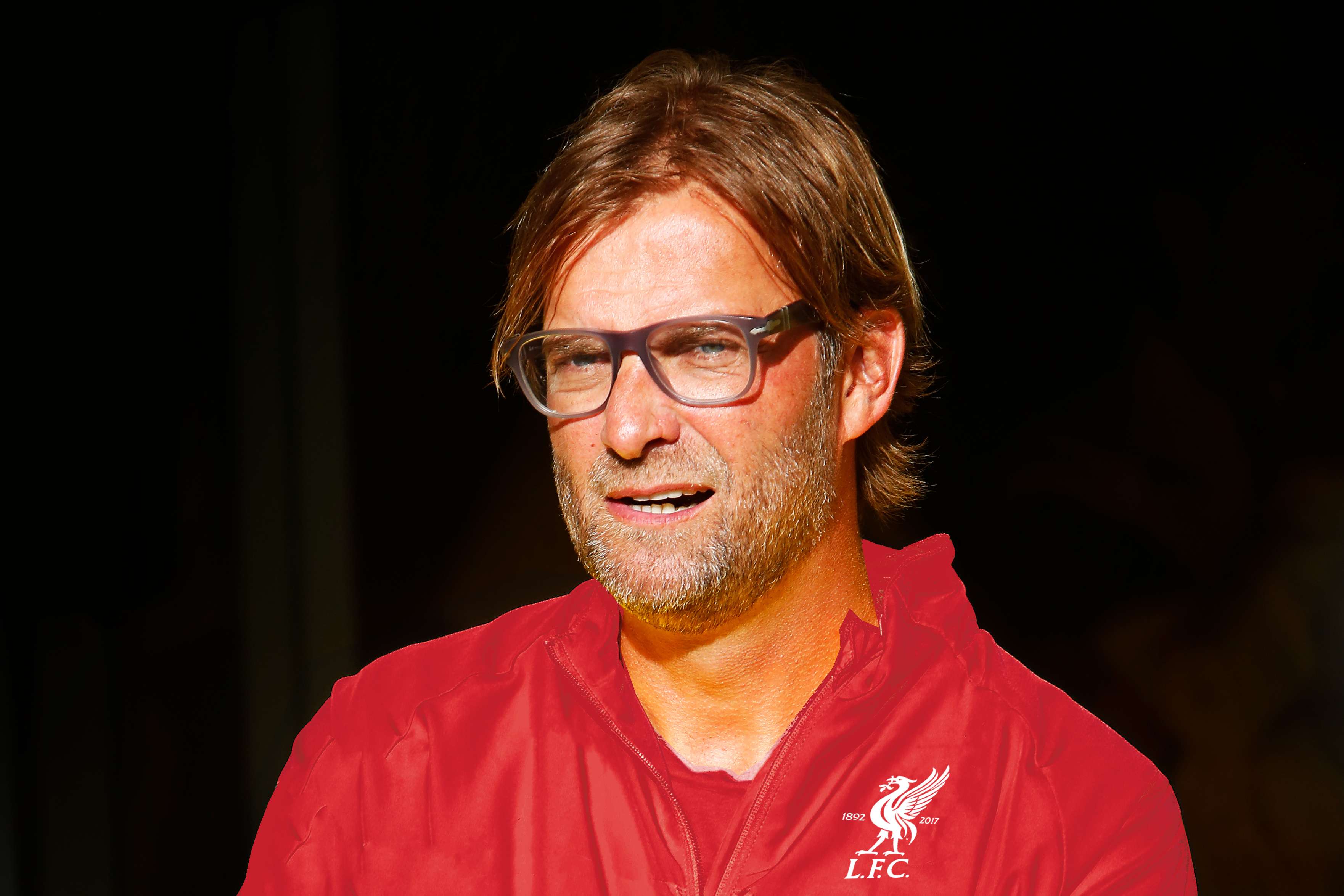As hordes of Liverpool fans began to make the long journey back home, after a weekend to forget in Kiev, Jürgen Klopp, seemingly unfazed by the calamitous final he had witnessed mere hours ago – sang proudly with a group of supporters through the night. The video footage went viral. Here stood a defiant manager, fresh from one of his biggest disappointments yet, who had just seen his star man leave the field early in agony, before two costly Loris Karius mistakes handed Real Madrid the Champions League trophy. “Madrid had all the f***ing luck,” they sang.
As ever with Klopp’s European runs to the final, there was a sense of destiny about the 2017/18 campaign – which made the eventual defeat in the final that bit more agonising. The 26th May 2018 was a different time for Liverpool fans. There was not yet a 97-point campaign in the Premier league to glean hope from; on the contrary, the club had just about scraped fourth place. Liverpool’s run to the final truly was the story of their season, littered with unforgettable moments against the likes of Porto, Manchester City and AS Roma – but it wasn’t to be in Kiev. Amidst the frustration, the disbelief and the agony, was Klopp. He stood firm, he sang, he still believed – even when few around him did so. And what’s more, he was right to.
Jürgen Klopp began his managerial life at Mainz, following a successful, if unspectacular spell as a player. The then 2. Bundesliga side had been managed by Wolfgang Frank, lauded by Klopp as the inspiration behind ‘Gegenpressing’. It was therefore hardly a surprise when Klopp took over as Mainz boss in 2001, following the sacking of Eckhard Krautzun. His formative years in management established credential’s and a method of play that would follow the German throughout his career. Former Mainz general manager Christian Heidel describes Klopp as an “incredible motivator”, via LFCTV, one who instilled belief as well as tactical nous. Jürgen himself has often attested that he isn’t the smartest coach in the game, telling Gary Lineker on The Premier League Show that his style of play is “not the smartest way”. He was even told at school, supposedly by his head teacher, that he hoped Jürgen’s career in football would be successful, otherwise “I don’t see a very good future for you”. And yet, despite the numerous put downs, Klopp’s refinement of gegenpressing, for the modern age, was truly revolutionary.
Klopp’s unique brand of football started to gain notoriety during his time at Borussia Dortmund, with his tactical revolution transforming the club from midtable mediocrity to Bundesliga champions in under four years. The former Mainz boss signed for BVB in 2008, with the club at a particularly low eb in their long and illustrious history, after finishing 13th in the previous Bundesliga campaign. Klopp, fully believing that Dortmund were indeed a sleeping giant – just waiting to be awoken, didn’t hesitate when the call finally arrived. You could scarcely find a club more tailor made for Klopp than BVB – although it’s fair to say Liverpool fans may now disagree with that sentiment. Changes were instantaneous, out went those deemed uncommitted to the cause, such as forward Mladen Petric (Honigstien, R. Klopp: Bring the noise, 2017), arguably BVB’s most talented player when the German boss first arrived. In their place came the grafters, the work horses and the loyal lieutenants that are all seemingly a theme of Klopp’s squads. In each successful carnation, are a smattering of players perhaps not as technically gifted as some of their peers, but are devoted to the cause, fervently running in all directions for the good of the team. The likes of Kevin Großkreutz and later on James Milner, became key to what Klopp was attempting to achieve. It was seemingly so essential, because of the brand of football that Dortmund in particular were attempting to execute.
The Germans unique brand of Gegenpressing would be titled “heavy mental” football by the man himself in the years that would follow, a perfect synopsis of its all action nature. The right players for that game were essential, and as you might imagine, with each year Klopp tailored his side to meet the demands of what was to come. Such demands were – by their very nature, tasking. But the growth and progress made year on year gave each player a reason to believe in Klopp’s personal footballing philosophy. A seventh-place finish in his first season was soon followed up by European qualification a year later, before the 10/11 season blessed Dortmund with a first Bundesliga title under Klopp. Just three seasons into the project, they had their very first title, with a still young and developing side. If the 2010/11 vintage represented all that Klopp’s sides stood for in terms of industriousness and tactical astuteness – then the following campaign would add that little bit of extra flamboyance, to take BVB to the next level.
A second Bundesliga title did indeed follow in 2012, with Lewandowski spearheading the attack, and the likes of Shinji Kagawa, Mario Götze and latterly Marco Reus to supplement him. 2012/13, while not a league winning campaign, would result in a Champions League final, after some spectacular wins on the road to Wembley. A 90th minute winner against Malaga was followed up by a 4-0 demolition of Real Madrid in the Semi-finals at Westfalenstadion – with Lewandowski scoring all four. This was peak BVB, peak Klopp, peak Heavy Metal football. What would follow, was a bitter end to Klopp’s remarkable Dortmund dynasty. The final at Wembley, against bitter rivals Bayern Munich, signalled the beginning of a run that the Jürgen will surely want to forget. Ending in a 2-1 defeat, it was to be the first of six subsequent major finals that the German would lose. Indeed, his triumphant reign at Dortmund came to a close with defeat in the DFB Pokal final – ironically to a Kevin de Bruyne inspired Wolfsburg side.
Klopp’s eventual arrival on Merseyside in 2015, despite the expectation and fanfare that came with the announcement, wasn’t expected to deliver major finals from the onset. And yet, come the end of his debut campaign, Liverpool had featured in two – The Europa League and League Cup, losing on both occasions. The sides instant ability to reach cup finals, while simultaneously struggling for form in the Premier League, shows best how his motivational skills can have an effect on the team right away. His tactical approach to the game, one based around the ethos of intensity and pressing, would take longer to implement fully than the eight or so months he had up to that point. As a result, erratic performances were frequent throughout the 15/16 season, and no game encapsulates the mayhem of Klopp’s first year at Liverpool quite like their Europa League last 16 fixture against the German’s former employers – Borussia Dortmund. Falling behind twice on aggregate at Anfield, all hope seemed lost – until goals from Divock Origi and Mamadou Sakho set the stage for a dramatic last minute Dejan Lovren header to win the tie. For all the sides tactical shortcomings that day, desire and faith from Klopp inspired his side to a memorable victory.
Each year since then, Klopp’s Liverpool have evolved and improved, adding a new layer of tactical astuteness and a degree of pragmatism with each passing season. It has long been pointed out by critics – unfairly so – that Klopp is indeed just a motivator, endlessly urging his players to work and press harder. But to assume that is to ignore all Klopp has done in helping his players to adapt their game in trying circumstances. Whenever problems have arisen, he has adapted to make his team as good as possible. Take this season for instance, where, after failing to sign Nabil Fekir from Lyon, Liverpool has started to build and create through their full backs, in the absence of a truly creative midfielder. It is a modification that has proved to be revolutionary, with Andy Robertson and Trent Alexander-Arnold contributing a combined 23 assists in the Premier League alone. His ability to identify the right transfer targets further highlights his skillset, with the signings of Allison Becker, Virgil van Dijk and Fabinho all pivotal in creating the defensively solid unit Liverpool have become.
It may no longer be the heavy metal football of old, but in adding steel to their defence, and guaranteed goals from their front three – it no longer has to be. The newly pragmatic approach clearly works, with Liverpool amassing a scarcely believable 97 Premier League points this season, falling just one shy of Man City. While this new approach has garnered great success in the league – in Europe, and indeed in finals, is where this strategy has been utilised best. Klopp’s previous approach is seen as ideal for away cup ties in particular. The attacking tactics of old had the ability to blow the opposition away in short bursts – right up until the final that is, where Klopp previously came unstuck. In Madrid however, the curse was finally lifted.
In a final of little intrigue for the neutral, Liverpool played a controlled, if not spectacular game – converting an early penalty, and refusing to overcommit for the majority of the game thereafter. The approach may not have yielded much in the way of chance creation, but it did effectively supress Tottenham until late in the game. With Spurs pilling on the pressure in the final 10 minutes, Liverpool won a fortunate corner, and after a succession of headers, the ball fell to Divock Origi – this seasons surprise hero – who duly fired it past Hugo Lloris. It wasn’t the prettiest of wins, but pretty football didn’t win finals. This was a new side to Klopp’s teams, resolute and pragmatic; it was, in many ways, the natural end game – a far cry from the all action heavy metal football that made him a household name back home. The emotional outpouring that followed – firstly on the pitch of the Wanda Metropolitano, and then subsequently in the streets of Liverpool, is not just an expression of relief, it is the sign of a city and a fanbase that has fallen back in love with their football club – in part, thanks to their manager.
When Jürgen Klopp first arrived on Merseyside in October 2015, he had one clear objective above all others; to convert a scarred fan base, wounded by the turbulent reigns of Roy Hodgson and Brendan Rodgers, from doubters to believers once again. There is a temptation at this point, to paraphrase the great Bill Shankly – If they didn’t believe him then, they most certainly do believe him now. In winning the club’s sixth European Cup, his place in the pantheon of Liverpool managerial greats is already assured.
By Tom Fenton.










